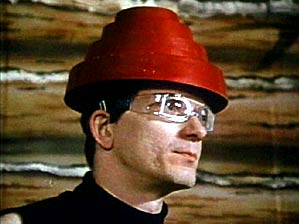 What do Mungo Jerry, the Vapors, Chumbawamba, Gary Numan, and Norman Greenbaum all have in common?
What do Mungo Jerry, the Vapors, Chumbawamba, Gary Numan, and Norman Greenbaum all have in common?
They were all musicians or groups that have the distinction of being one-hit wonders. They each had a very popular song that is their claim to fame, but never really were ever able to reproduce the success with a second song.
How many one-hit companies do you know of or have you worked for? Companies that have an initial successful product, but cannot or could not repeat that success with follow up products?
There are a lot of them. A lot of companies have founders who, through a mix of insight, timing, sweat and luck, find themselves in the enviable position of having a successful product that can sustain the company’s growth for a few years.
Then, as the market matures or as the company grows, they decide to create a second product; perhaps one in an adjacent market, or a derivative product based on the original one. But unfortunately, this second product is not successful. It may not be a complete failure, but it truly fails to live up to expectations, and only earns a fraction of the revenue originally projected.
This process may be repeated many times over, creating new products, taking them to market and ultimately seeing them fail or miss their mark in terms of success.
As the joke goes: What’s worse than a product that has no customers?
Answer: A product that only has only a few customers. It’s really easy to EOL a product with no customers.
How many failed products was that?
While interviewing a candidate recently, I was told that the company he currently works in has 1 successful product that generates over 95% of the company’s revenue, one emerging product, and over 50 (I kid you not) products over the years that failed or were pulled from the market!
The product that generates 95% of their revenue was their first product. They’ve never been able to recreate the success of the product. What does that tell you about the reasons for the success of their first product?
I’ve seen many companies that have this problem (though not one with so many failures!). And why does this pattern happen?
Usually it happens because people don’t know what made them successful in the first place. They don’t realize that domain knowledge, insight, timing, market conditions, and many other intangibles all had a part to play in their initial success.
I can tell you almost certainly that their initial success was not due to a deep understanding and practice of disciplined product management in their company. But in order to have repeatable success, that’s exactly what they need.
Do you want to be The Vapors or U2?
The question is, how to overcome the hurdles blocking that second or subsequent success? How can we take companies that resemble Mungo Jerry or The Vapors, and turn them into something that resembles the Rolling Stones or U2 ?
In most cases, those hurdles lie close to the founders of the company who likely don’t understand Product Management’s value and role, or may think that they can repeat their initial success by doing the same things they did the first time!
For product managers, this can be a frustrating. How can we collectively get companies over that initial hump of understanding the value that disciplined Product Management can bring to their companies?
And, the answer is NOT Product Management certification. 🙂
Saeed